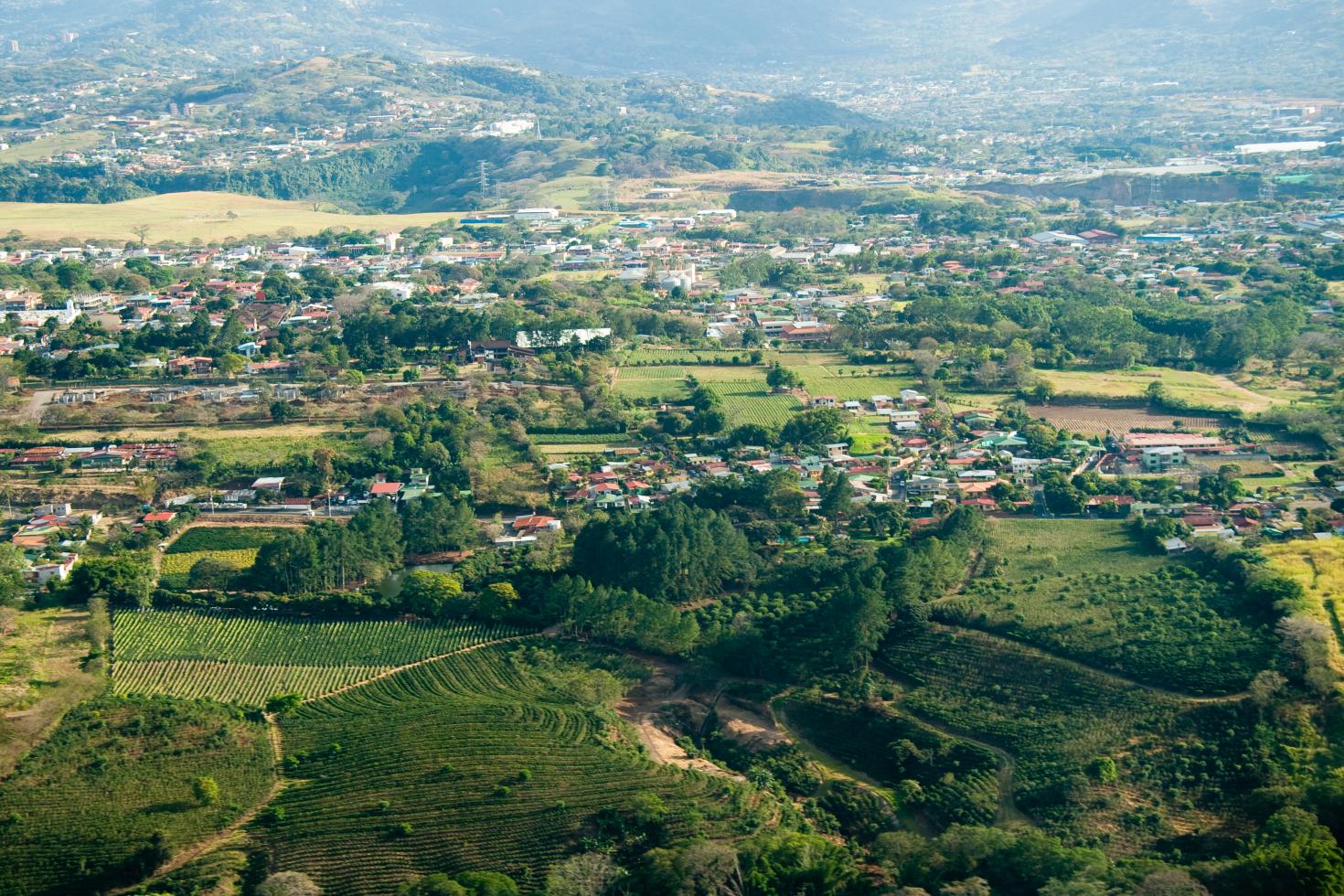An event held at IICA Headquarters focused on analyzing the challenges faced by these spaces in Central America, as well as the opportunities they afford to revitalize sustainable development.
San José, 1 March 2017 (IICA). According to the United Nations (UN), by 2050, approximately 6 billion of the world’s predicted 9 billion inhabitants will live in cities, seeking better opportunities, access to basic services, and a better quality of life.
This growing urbanism would aggravate the problems already faced by large metropolises, such as lack of public safety, heavy traffic and bottlenecks, garbage, poor water treatment, saturation of public services, inadequate food supply and economic informality.

Intermediate cities, which serve as vital bridges between rural and urban areas, would represent a breath of fresh air, by facilitating rural dwellers’ access to services, basic facilities and job sources.
An international meeting held at the headquarters of the Inter-American Institute for Cooperation on Agriculture (IICA) fostered a high-level discussion geared toward analyzing the challenges facing intermediate cities in Central America, as well as the opportunities they afford to revitalize sustainable development in the region’s rural areas. The event also sought to identify the elements needed to drive political, technical, economic and environmental strategies, as well as make public and private investment viable in order to strengthen these cities.
The event was organized by IICA together with the Center for the Participation and Sustainable Human Development (CEPAD) of Bolivia, Florida International University (FIU) and the Governors’ Council of Paraguay.
“This reality must motivate our discussion, given its implications for agriculture, rural society and food security. Intermediate cities are better able to develop constructive policies toward labor markets as well as capture rural workforce to stimulate the local economy, while taking advantage of its productive, peri-urban potential; in this way, they are better able to address the demands for food of major cities,” stated Víctor M. Villalobos, Director General of IICA.
He added that intermediate cities also provide a series of advantages from an environmental standpoint. “Smaller populations mean smaller ecological footprints, more efficient services and a greater capacity for social awareness, especially with respect to rational water use,” stated Villalobos.
The Latin American and Caribbean region has 961 intermediate cities, which represent 11% of the total number of intermediate cities in the world, and account for 20% of the global population.
“These are spaces in which public policies can be more efficiently managed, with the aim of achieving greater social cohesion and fulfilling the duties of larger cities. They can serve as coordination nodes among territories, facilitating relationships with rural and productive towns and communities,” explained Carlos Hugo Molina, Innovation Director of CEPAD.
This can only be accomplished by means of adequate public policies and public and private investment geared toward the creation of an agenda for intermediate cities.
“Moderate progress has been achieved in the development of political capabilities based on the potential of local governments. The next step is to ensure that these governments possess the resources, political autonomy and capacities needed to develop the infrastructure that will maximize this potential,” stated Allan Rosenbaum, Director of the Institute for Public Management and Community Service at FIU.
Participants at the event shared the experiences of the Mesoamerican region with intermediate cities, detailing the realities of Costa Rica, El Salvador, Guatemala, Mexico, Nicaragua and Honduras. The experiences of Bolivia, Paraguay, Brazil, Colombia and Ecuador were also shared.
The event gathered representatives of local governments, mayors, civil society representatives, representatives from the academic sector, decision-makers and specialists from international organizations related to this topic.
More information: diego.montenegro@iica.int











